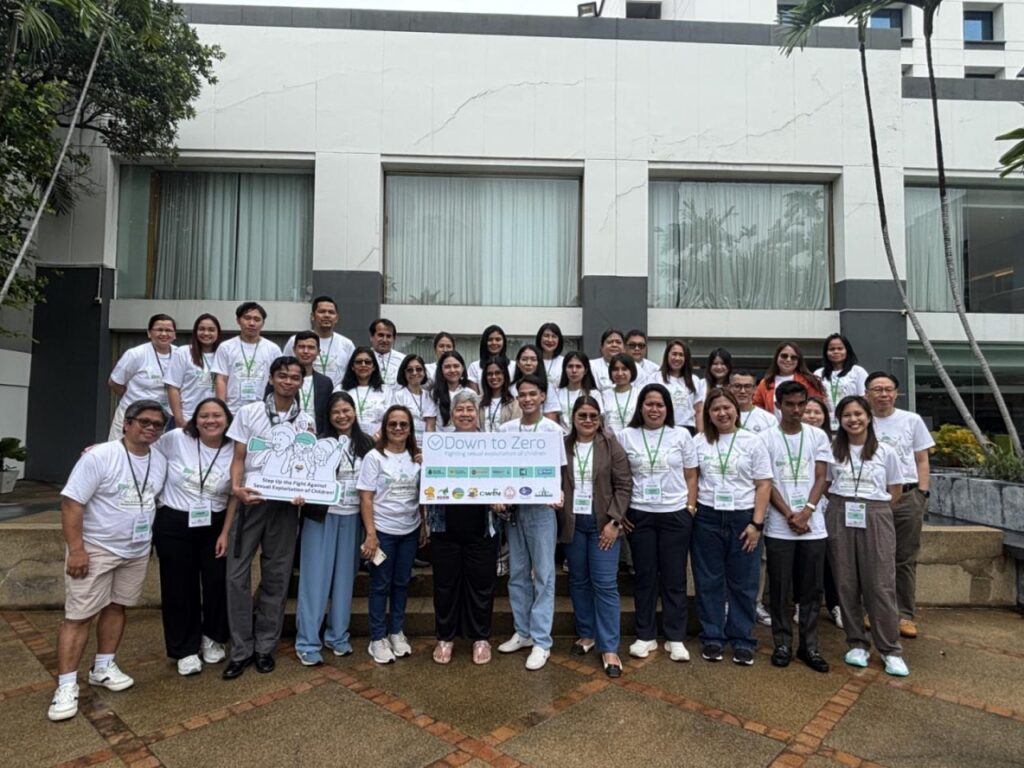Bangkok, Thailand — July 2025
CRC Asia, in its third and final year of implementing the SUFASEC Program (Step Up the Fight Against the Sexual Exploitation of Children) under the Down to Zero Alliance*, held the SUFASEC Learning Exchange Forum in collaboration with the Childline Thailand Foundation.
The program is currently implemented by six of CRC Asia’s member organizations: Yayasan SEJIWA, The Life Skills Development Foundation (TLSDF), Childline Thailand Foundation (CTF), Alliance for Child Rights Mindanao, Inc. (ACRMI), Child Workers in Nepal (CWIN), and Village Focus International (VFI).
The SUFASEC Learning Exchange Forum was a productive platform to highlight best practices, share innovative approaches, and identify sustainability measures as the program enters its final stage. Discussions covered the complex landscape of child protection, focusing on online sexual abuse and exploitation of children (OSAEC), comprehensive sexual education (CSE), and sexual and reproductive health and rights (SRHR).
Working With and For Children
One of the strongest lessons was the power of children and youth themselves. Peer-to-peer education puts young people at the forefront, as facilitators, campaigners, and role models. From Girls Clubs in Lao PDR, to youth champions in Indonesia, to peer facilitators in the Philippines and Nepal, TLSDF, VFI, ACRMI, SEJIWA, and CWIN showed how youth leadership raises awareness, builds confidence, and strengthens advocacy from within.
This commitment extended to creating safe spaces where young people could speak freely and seek support. TLSDF’s youth-friendly rooms, VFI’s Girls Clubs, SEJIWA’s counseling helpline, and CTF’s hotline gave children both privacy and dignity, encouraging them to access services or simply be heard.
Youth also co-created information and education materials, comic books, training modules, and online videos, that resonated with peers and communities. Tailoring these to local languages and cultural contexts proved especially effective when working with indigenous and ethnic minority groups.
It Takes a Village To Protect Children
Protection requires collective effort. Across the region, the implementing organizations partnered with governments, civil society groups, schools, parents, and community leaders to integrate SRHR and child protection into local systems and plans. Parents, teachers, and community leaders also became adult champions, lending their voices and influence to advocacy.
Some groups went further, linking SRHR and child protection to broader issues such as climate change, disaster risk reduction (DRR), mental health, and livelihoods—making child rights advocacy both more comprehensive and more relevant.
Barriers Still Standing
Despite progress, several stubborn challenges persist:
- Cultural taboos around sexuality, SRHR, and gender norms continue to silence conversations. Stigma often forces children and parents into hesitation, requiring slow, indirect approaches.
- Legal and policy gaps remain stark. Thailand, for example, lacks specific laws against sextortion, grooming, and cyberbullying. Strict evidence requirements delay justice for online sexual exploitation, while parental consent laws restrict youth from accessing SRHR services.
- Limited private sector engagement hampers innovation, particularly in countries like Nepal, where companies are rarely involved in social advocacy.
- Reaching marginalized groups, including indigenous children, children with disabilities, and LGBTQ+ youth, remains a pressing challenge due to language, cultural barriers, and entrenched power dynamics.
Looking Ahead
As the program nears its close, members stressed the urgency of continuity, whether through local resource mobilization or international support. The lessons shared in Bangkok are more than reflections; they are a roadmap for future advocacy, capacity building, and collaborative action to protect more children across the region.
About the DtZ Alliance
The Down to Zero (DtZ) Alliance is a partnership of six international organizations—Terre des Hommes Netherlands, CRC Asia, Conexión, Defence for Children-ECPAT, Free a Girl, and Plan International Nederland—working across Asia and Latin America to prevent and stop the sexual exploitation of children. The SUFASEC program is supported by the Dutch Ministry of Foreign Affairs.





